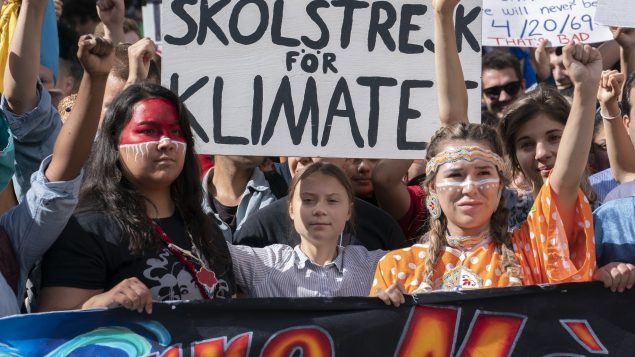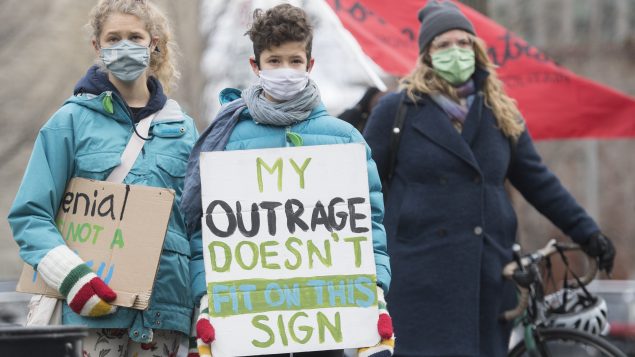A just-published United Nations survey ranks Canada seventh out of 50 countries in recognizing the importance of climate change.
Billed by the United Nations Development Program as the biggest-ever climate poll, it took two years to complete and had 1.2 million responses, in 17 languages, covering 50 countries with over half of the world’s population.
The survey, released today, included over half a million people under the age of 18, drawing respondents through the use of popular online games, such as Angry Birds and Dragon City.
As people played the games, a questionnaire would pop up instead of an ad.
50 countries. 17 languages. 1.2 million people.
The results are in of our #PeoplesClimateVote – the largest survey of public opinion on #ClimateChange ever conducted. Read more and explore the findings now: https://t.co/9s64aEletP#Mission1Point5 pic.twitter.com/TDkN7GcIz7
— UN Development (@UNDP) January 27, 2021
Three-quarters of Canadians surveyed believed climate change was an emergency–compared with the global average of 64 per cent–that belief topping out at 83 per cent from respondents under the age of 18.
“Canada was at the top end of the group of countries we surveyed in terms of the recognition of the climate emergency,” Steve Fisher, an Oxford University sociologist who helped run the survey, said in a report today by The Canadian Press’s Bob Weber.
The survey, according to Weber, “found Canadians liked solutions based in conservation with support for nature-based climate policies higher in Canada–at 79 per cent–than in any other countries with high carbon emissions from land use.”
Among those Canadians is Autumn Peltier, a First Nations water rights activist who addressed the UN General Assembly on world water day in March, 2018 when she was 13 and again year later.

Autumn Peltier, a First Nations environment activist, has been advocating for clean water since she was eight. (Courtesy of Stephanie Peltier)
Canadians, Weber reports, also want polluters to pay–with about 69 per cent favouring policies that regulate company behaviour.
Only the United Kingdom–at 72 per cent–registered stronger among high-income countries.
And, at 81 and 80 per cent respectively, respondents in the U.K. and Canada were virtually tied at the top in support of ocean and waterway protection.
Canada had the largest gap between men and women in their assessment of the importance of climate change.
Canadian women and girls surveyed were 12 per cent more likely to rate it an emergency than men and boys, while globally there was little difference.
(Last November Environment and Climate Change Minister Jonathan Wilkinson tabled legislation that would force current and future federal governments to set binding climate targets to get Canada to net-zero carbon emissions by 2050.
If passed, the bill would require the federal government to set five-year interim emissions reduction targets over the next 30 years to ensure progress toward that ambitious goal.)

Swedish activist and student Greta Thunberg, centre, takes part in the Climate Strike, in Montreal on Sept. 27, 2019. (THE CANADIAN PRESS/Paul Chiasson)
Results from around the world showed almost two-thirds of the respondents said climate change is a global emergency and urged greater action to address the crisis.
According to a UN media release, respondents were asked whether they supported 18 key climate policies across six action areas: economy, energy, transport, food and farms, nature, and protecting people.
Conserving forests and land came in at the top (54 percent), followed by the need for more solar, wind and renewable power (53 percent), adopting climate-friendly farming techniques (52 percent) and investing more in green businesses and jobs (50 percent).
The survey also found that younger people–in every country–believed more strongly than older people that climate change is an emergency–with 69 percent of those under the age of 18 saying so.
About about two-or-of three of people aged 18 to 59 said they recognised climate change as an emergency, as did 58 percent of people aged 60 and over.

Thousands of people took to the streets joining in a climate strike that Swedish activist Greta Thunberg attended in Vancouver on Oct. 25, 2019. (THE CANADIAN PRESS/Melissa Renwick)
The UN press release notes that the UNDP conducted the poll as countries prepare for negotiations at November’s COP26, the 26th session of Conference of the Parties to the UN Framework Convention on Climate Change (UNFCCC).
With files from The Canadian Press (Bob Weber), United Nations press office.







For reasons beyond our control, and for an undetermined period of time, our comment section is now closed. However, our social networks remain open to your contributions.